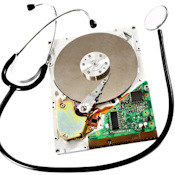
18 Apr How to Turn Your Clinical Skills into Healthcare IT Expertise
Chances are, if you began your career as a healthcare clinician, you never thought about transferring those skills into a career in health IT. But, it just might be something to consider.
With healthcare organizations, hospitals and practices nationwide scrambling to meet the EMR conversion deadline, healthcare IT experts are in high demand. Even more in demand are the clinicians–nurses, physicians, physician assistants, therapists, lab technicians, and more–who know firsthand how the internal operations at hospitals and other healthcare outlets work.
That’s good news for clinicians looking to break into another arena; and it’s something to think about for clinicians who, until now, never realized their job skills are transferable. Below, we’ve outlined a few jobs where you can turn your clinical skills into health IT expertise.
Clinician/Practitioner Consultants
An ideal transition for licensed clinical or public health professionals, the Clinician/Practitioner Consultant acts as a liaison between users, IT staff and vendors in the EHR deployment. These consultants use their knowledge to help select EHR hardware/software and work to ensure clinical goals are met. They also serve as advocates for system users and make sure the concerns of patients and consumers are addressed along the way.
Redesign Specialists
Similar to Clinician/Practitioner Consultants, Redesign Specialists help to reorganize the provider’s workload to maximize EHR effectiveness in improving patient care. They also design processes that facilitate quality improvement and reporting. Unlike Clinician/Practitioner Consultants, Redesign Specialists are not necessarily licensed clinical professionals.
Clinical Analysts and Informaticists
These clinicians analyze, configure, test, or troubleshoot any application or system within the hospital. Their responsibilities could also extend to training staff on computer systems or applications, project management, or setting up applications used in doctors’ offices. Informaticists, in particular, help to analyze clinical data to produce predictive modeling and outcomes in order to improve patient care.
How Do You Become a Healthcare IT Expert?
You’ll likely have to look no further than your local community college. Thanks to a federal grant from the Office of the National Coordinator for Health Information Technology (ONC), more than 70 community colleges in all 50 states participate in the Community College Consortia to Educate Health Information Professionals. The Consortia is a free, non-degree healthcare IT training program for providers, clinicians, and office staff who want to learn how to incorporate healthcare IT into their practices.
Since its inception in 2009, the Consortia has given grants to community colleges in each state to develop or improve non-degree healthcare IT training programs, all of which can be completed in six months or less.
For more information or to find a program near you, visit the ONC website.
